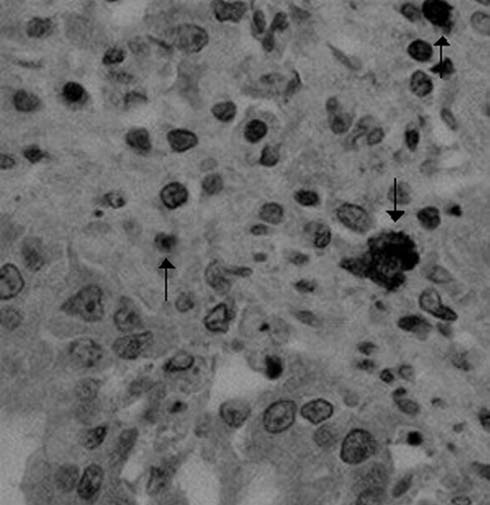Summary:
"Coronavirus puppies survival (CCoV) is dependent on early diagnosis. The disease is rarely fatal although the key is early detection and treatment."
Overview
If your puppy is diagnosed with coronavirus, don't panic. With early detection and proper treatment the virus commonly resolves.
The disease lives in the small intestine and can spread to other parts of the body such as the lungs and liver. There is a more virulent or lethal strain of canine coronavirus, however this has been seen in very limited cases.

Source: Centers for Disease Control (PDF)
Symptoms of Coronavirus in Puppies
The most common and often only symptom is diarrhea. The number one cause of diarrhea in pups is Parvovirus and number two is Coronavirus. Not all diarrhea in pups is the same. Diarrhea from eating trash tends to have mucus, where diarrhea from Coronavirus is watery and often has a foul smell.
If you see blood it probably is the much more severe Parvovirus. While rare, there are cases of having Coronavirus and Parvovirus at the same time.
Duration
The virus unusually starts 2 - 4 days after it is ingested and can lasts between 2 - 7 days. The virus is shed in the stool for 6 - 9 days or more.
Treatment of Coronavirus in Puppies
The key to coronavirus puppies survival is preventing dehydration (not getting enough fluids or water).
If you puppy will drink, try small amount of Pedialyte or Gatorade.
If your puppy will not drink at all, the Veterinarian willintroduce forced water hydration. This is often done by hydrating through under the skin injections or an IV.
The Veterinarian may introduce antibiotics to prevent secondary infections.
Coronavirus Vaccine for Puppies
There is mixed scientific evidence regarding the long term effectiveness of coronavirus vaccines.
If your Veterinarian recommends it, the vaccine is usually part of a multi-disease vaccine and is given at age 12, 14 and 18 weeks.It typically lasts for one year.
Prevention
The best way to prevent coronavirus in a puppy is to minimize exposure. This means not allowing your pup outside or near other dogs until it is fully vaccinated.
Often dogs from "puppy farms" or kennels without the highest standards suffer from outbreaks. Have a puppy purchased examined by your Veterinarian right away.
If you have another dog, minimize contact between the two and wash any shared toys and dishes.
